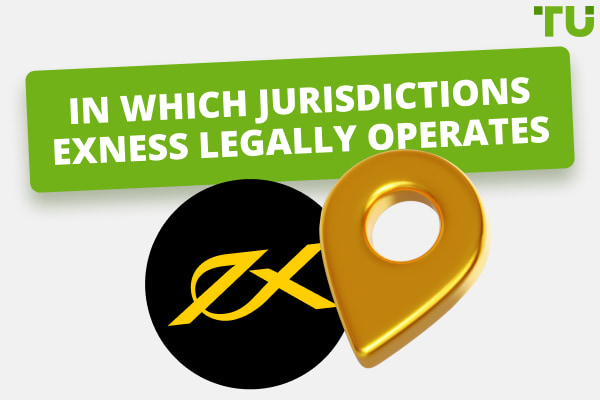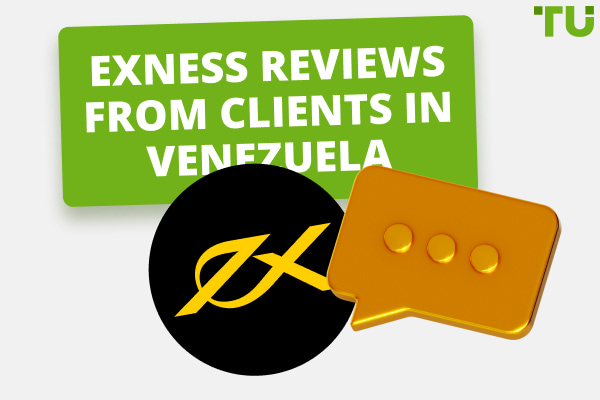
Where Does AMarkets Legally Operate?
Which countries accept AMarkets?
Argentina, Brazil, Canada, Nigeria, Colombia, Albania, Belize, Australia, Belarus, Bangladesh, Chile, South Africa, Ghana, Iran, and Malaysia are among the countries that accept AMarkets.
The majority of reviews from professional traders using AMarkets show these users are satisfied with the broker’s services. While AMarkets is a top trading platform, traders may face unavailability of its services in some countries. This is a result of some regulatory sanctions that hinder the broker from accepting clients from the affected jurisdictions. Before registering with the broker, it is advised that traders first confirm whether AMarket accepts clients from their home country.
This article is a great resource to learn about AMarkets countries and regulators monitoring their operations. Read on to find out.
-
Is AMarkets a good broker?
Yes. AMarkets is a reputable broker that provides CFD trading on bonds, soft commodities, ETFs, and futures. Customer service is dependable and can be reached by phone, email, or live chat. AMarkets' web platform offers popular features like one-click trading, trading from the chart, and watchlists, with leverage ranging from 1:1 to 1:3000 on Standard, Fixed, and ECN accounts.
-
Where is AMarkets based?
AMarkets is governed by the Financial Supervisory Commission (FSC) and has its headquarters in the Cook Islands, an autonomous island nation connected to New Zealand. They also possess an offshore license on the island of Mwali (Comoros).
-
Who is the owner of AMarkets?
AMarket, an online brokerage business founded in 2007, is owned by Canada Rao. This broker's exceptional service has earned it numerous awards. An international web-based journal covering the newest developments in fintech and business, Global Business Review Magazine, named AMarkets the "Fastest Growing Broker Asia 2023" in 2023. This broker's nomination as the "Most Reliable Broker 2023" by Finance Feeds, an independent real-time financial news source that covers currency and CFD trading, signifies its dependability.
-
What is the minimum deposit for AMarkets?
AMarkets demands a minimum deposit of $100, while the minimum withdrawal amount is $. Because of security concerns, the daily limit for WebMoney withdrawals is $2,000, and the bank transfer is limited to $100.
Is AMarkets legal and safe?
AMarkets is a top reputable, safe, and reliable brokerage that multiple regulators regulate. Below are some of the regulators of this top trading platform.
-
Financial Supervisory Commission (FSC) (registration number LLC14486/2023)
-
Mwali International Services Authority (MlSA) ( license number T2023284)
-
Financial Services Authority (FSA) (registration number 22567 BC 2015)
AMarkets is an approved participant in The Financial Commission, an independent financial services industry mediator that guarantees a broker's honesty and openness and offers up to €20,000 in compensation for each trade claim. Every month, Verify My Trade, an impartial third party, audits AMarkets' order execution quality.
The security of client funds, business stability, operational dependability, and interest protection are all guaranteed by the legal framework of AMarkets. This broker incorporates algorithmic trading, risk management tools, and signals, among other top analytical tools. For AMarkets to remain certified and ensure the best execution standards, they submit 5,000 monthly trades for comparative analysis against the best liquidity providers.
This broker has two offices: Mite Ružića 1/9 in Novi Sad, Republic of Serbia, and T&F Chambers on Main Road in Rarotonga, Cook Islands.
Available AMarkets countries
AMarkets is an international STP and ECN broker that offers one of the fastest order execution speeds in the Forex market. Over 90% of customer orders are finished in 35–50 milliseconds. This makes it one of the best offshore brokers, even though it is not legal in some countries. Here are some of the countries where market services are available.
-
China
-
Costa Rica
-
Nigeria
-
Albania!
-
Belize
-
Canada
-
Colombia
-
Belarus
-
Argentina
-
Bangladesh
-
Chile
-
Brazil
-
Cameroon
-
Australia
-
Egypt
-
Bahamas
-
Ecuador
-
Gibraltar
-
Indonesia
-
Israel
-
Hong Kong
-
India
-
Mexico
-
South Africa
-
Sri Lanka
-
Ghana
-
Iran
-
Malaysia
-
Pakistan
-
Kenya
-
Lebanon
-
Philippines
-
Qatar
-
Rwanda
-
Turkey
-
Ukraine
-
UA
-
Seychelles
-
Thailand
-
Yemen
-
Uruguay
-
Vanuatu, etc.
The services this Forex broker provides and the ways it conducts business in these nations differ. The different financial laws that control international investment platforms contribute to this. For example, the EU's MiFID II law prohibits brokers from giving traders bonuses, and retail traders are only allowed to use leverage up to a maximum of 30:1. Brokers must also keep client funds segregated from their own to protect clients in case of bankruptcy.
Again, they must provide clients with comprehensive information about the risks associated with trading, ensuring that clients are aware of the potential losses involved. AMarkets adhere to these protocols when offering services in EU nations.
Which country is AMarkets banned from?
The following list of nations includes those where AMarkets does not offer services to its residents.
-
USA
-
Cyprus
-
Japan
-
Norway
-
Romania
-
Spain
-
Switzerland
-
UK
-
Greece
-
Italy
-
Jamaica
-
Malta
-
Netherland
-
New Zealand
-
Sweden
-
Belgium
-
Afghanistan
-
Hungary
-
Czech Republic
-
Botswana
-
Denmark
-
France
-
Comoros
-
Germany
-
Guinea
-
Guinea-Bissau
-
Portugal
-
Angola
-
Armenia
-
Burundi
-
Cape Verde
-
South Sudan
-
Sudan
-
Zambia
-
Zimbabwe.
-
Chad
-
Ethiopia
-
Mozambique
-
Namibia
-
North Korea
-
Paraguay
-
Senegal
-
Algeria
-
Gabon
-
Gambia
-
Grenada
-
Lesotho
-
Liberia
-
Madagascar
-
Mauritania
-
Bulgaria
-
Estonia
-
Finland
-
Iceland
-
Ireland
-
Liechtenstein
-
Luxembourg, etc.
You can also contact the customer if your country is not on the list or if you want to know if the broker now offers services in any of these countries.
Is Forex trading risky?
Yes, without a doubt, trading foreign exchange (Forex) is not without risk, even though it is the largest market with the highest volume of trades. However, potential traders should educate themselves on the risks associated with Forex trading before starting and learn ways to reduce or eliminate them since there are instigators. Interest rates, inflation, economic indicators, and changes in geopolitics are just a few of the many economic factors that make Forex trading risky.
These factors cause sudden and erratic changes in currency values, making the foreign exchange markets volatile. The intricate relationships between these unpredictable elements make forex trading a riskier and more difficult endeavor. Prospective gains or losses may arise due to sudden changes in market conditions.
Although traders can use leverage to manage larger position sizes with a smaller initial investment and boost earnings, there is a risk of increased losses when using leverage, particularly when it is high. During times of market volatility, aggressive use of leverage can result in significant losses on initial investments. When counterparty risk exists, the potential for monetary losses as a result of a third party's inability to perform under a contract increases the stakes.
As risk exposure increases, it is imperative to employ prudent risk management techniques. Owing to the Forex trading risks, traders should approach Forex trading with a comprehensive understanding of market dynamics, employ efficient risk management techniques, and stay up to date with the various factors that impact currency markets.
Team that worked on the article
Peter Emmanuel Chijioke is a professional personal finance, Forex, crypto, blockchain, NFT, and Web3 writer and a contributor to the Traders Union website. As a computer science graduate with a robust background in programming, machine learning, and blockchain technology, he possesses a comprehensive understanding of software, technologies, cryptocurrency, and Forex trading.
Having skills in blockchain technology and over 7 years of experience in crafting technical articles on trading, software, and personal finance, he brings a unique blend of theoretical knowledge and practical expertise to the table. His skill set encompasses a diverse range of personal finance technologies and industries, making him a valuable asset to any team or project focused on innovative solutions, personal finance, and investing technologies.
Dr. BJ Johnson is a PhD in English Language and an editor with over 15 years of experience. He earned his degree in English Language in the U.S and the UK. In 2020, Dr. Johnson joined the Traders Union team. Since then, he has created over 100 exclusive articles and edited over 300 articles of other authors.
Mirjan Hipolito is a journalist and news editor at Traders Union. She is an expert crypto writer with five years of experience in the financial markets. Her specialties are daily market news, price predictions, and Initial Coin Offerings (ICO).











